
27-02-2026 17:51
 Michel Hairaud
Michel Hairaud
Bonjour, Quelqu'un peut il me donner un conseil p

28-02-2026 14:43
A new refrence desired :Svanidze, T.V. (1984) Novy

29-11-2024 21:47
Yanick BOULANGERBonjourJ'avais un deuxième échantillon moins mat

27-02-2026 16:17
 Mathias Hass
Mathias Hass
Hi, Found this on Betula, rather fresh fallen twi

27-02-2026 12:56
Åge OterhalsFound on fallen cones of Pinus sylvestris in midle

27-02-2026 11:21
 Yannick Mourgues
Yannick Mourgues
Hi to all. Here is a specie that can may be relat
Encore un indéterminé de l'an dernier, d'une réserve dont je m'occupe (réserve naturelle de Wilbrote, région de Durbuy, Calestienne, prov. LX, B.). Sur tige morte de Hypericum perforatum, le 30.04.12. Non conservé, c'est pour avoir une idée.
Alors là, c'est un bituniqué je pense, mais hormis cela, je donne ma langue au chat!
Fentes -> 0.5 mm, s'ouvrant par déchirure, en groupes. Péridium olive, se déchirant, formant presque une apothécie. Hyménium incolore.
Asques 8-sporés, sp. unisériées ou irrégulièrement bisériées en quinconce. Pas d'appareil apical. Epaisseur x 9-10.5 µ. IKI négatif. Apparemment pas de hamatécium.
Spores hyalines, 1 à 3-septées, (15)17-20 x (4.8)5.5-7 µ. On observe souvent quelque chose que j'ai interprété comme des spores germées, à moins que cela ne soit des conidies (voir photo).
Une idée?
Amitiés - Luc BAILLY.?

I suppose you have what I tried to identify as "Tarbertia" (tentatively but probably wrongly placed in Durelloideae). But there is something quite similar which we identified as Exarmidium inclusum (Hyponectriaceae), which has more perithecioid ascomata.
Click here:
https://www.cubby.com/p/_778a6f3587954e008790666f822f8e4e/7a+Helotiales#7a%20Helotiales/Durella%20group/Tarbertia
https://www.cubby.com/p/_94bc7715309f400391e776656de1b46e/8g+Xylariomycetidae#8g%20Xylariomycetidae/Hyponectriaceae/Exarmidium
I remember we had already a thread on Exarmidium here.
Zotto

http://www.ascofrance.fr/search_forum/12420?
my collection "matched" E. cf. diaphanum.
Regards
Martin
The shape of the spores matches with Tarbertia sp. from Zotto's collections, but yours are too small to fit, so I reject this hypothesis (at least that species).
Martin, what you posted is very similar to what I found. I'll have to check the paper on Exarmidium tomorrow, because Cyberliber seems down atm. Then, I'll tell you if I find something. I wouldn't be that surprised to see a species growing on woody substrates on Hypericum, because Hyericum is quite lignified.
Thanks to both, and cheers - Luc BAILLY.

Zotto
That's a possibility the spores I have are too big due to being overmature: they're germinating.
By the way, I took my notes and I noticed when studying my samples there were sometimes 2 ascomas below the clypeus, witch is mentioned in the paper about Exarmidium (Martin just sent it to me). My sample fits quite well the description of Exarmidium diaphanum. Also, the general shape of the ascoma's fits way better with an Exarmidium.
So, for me, either it's Exarmidium diaphanum, or something very close.
Cheers - LUC.
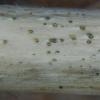
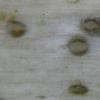
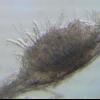
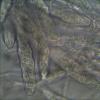
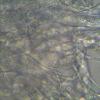
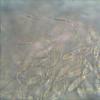
 Exarmidium-diaphanum-18VII2010-en-0001.pdf
Exarmidium-diaphanum-18VII2010-en-0001.pdf